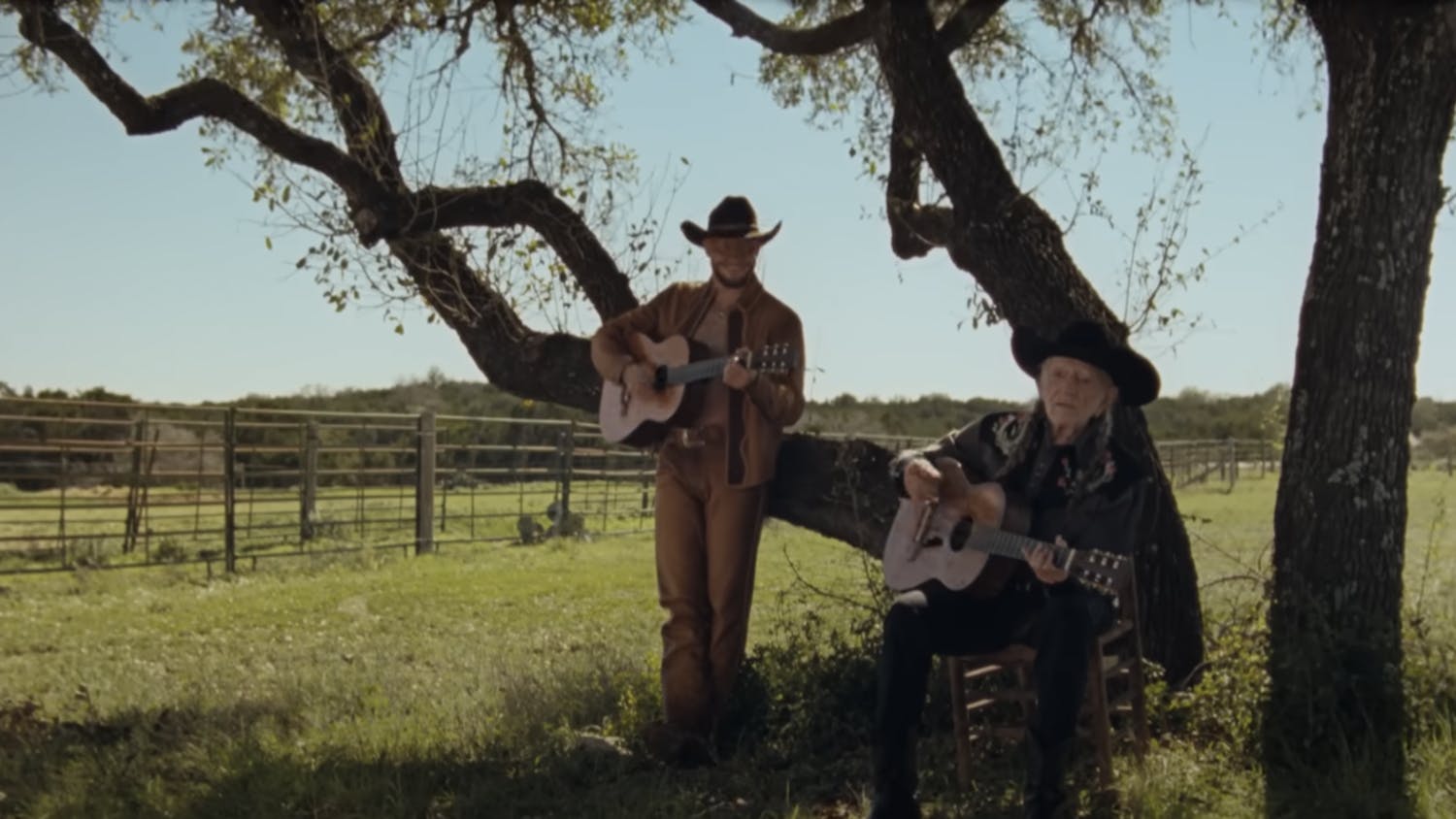You may know him as Ziggy Stardust, Major Tom, Jareth the Goblin King or as that British bloke who doesn’t mind wearing tights and, hey, looks pretty good in them. But to everyone worldwide, he’s known as David Bowie.
Now 66 years old, David Bowie shocked even his most faithful listeners with the sudden announcement of a 24th studio album earlier this year, after 10 years of silence. The Next Day focuses on the struggles of today and tomorrow and managing to somehow outlast them. Coming from an artist who wasn’t expected to grace the charts again, the title is no mere coincidence. The album reflects on what has become of the world, while suggesting the current state of things is not nearly as bright it was yesterday.
On his latest work, the glam rock sage uses eclectic lyrical poise to comment on themes that are more pertinent than ever, from modern celebrity culture to modern warfare. Death, guns, ghosts and graveyards all make multiple appearances on the album, though in typical upbeat Bowie fashion. His records always carry a fair amount of tracks where Bowie sounds passionate, often on the brink of breaking down. That’s exactly the case on his first single from the album, “Where Are We Now?,” which was released the day of the album’s announcement. The track is a heart-wrenching, introspective lament for another time in Bowie’s life, making multiple references to locations in Berlin, an extremely influential city for the artist—it was the place where he found his unique sound during the 1970s.
“Where Are We Know?” sounds like the soundtrack to a nostalgic walk through the streets of the German city, a thoughtful reflection on where Bowie (and the world at large) has gone since. “How Does The Grass Grow?” is an upbeat track with dark undertones—at one point Bowie croons, “Where do the boys lie? Mud, mud, mud/How does the grass grow? Blood, blood, blood.” It’s worth mentioning not many artists can manage to meld such somber topics with energetic pop rock melodies.
The album is marked with the overarching themes of despair and longing. It’s a glam rocker’s lament, if you will. We could all spend hours analyzing Bowie’s cryptic words, but this album may be an example where just listening and tapping along is enough. No matter the lyrical content, David Bowie makes me wanna boogie. Rich saxophone, guitar and bass notes are the part of every Bowie album I affectionately call “space jazz swank.” The album’s title track is a perfect example of this uniquely-Bowie style. With fierce vocals and instrumentals, “The Next Day” is a beat that makes you want to tap your feet. “Dancing Out in Space” is another quirky track with a smooth electric pulse behind Bowie’s chanting “Something like religion/Dancing face to face/Something like a drowning/Dancing out in space.” A bit dreary when you think about it? Yes, but fun nonetheless.
Despite a decade in the dark, it’s hard to call the record a “comeback” when it never felt like Bowie left the music scene. From his relatively downbeat “China Girl” to the overly flamboyant “Let’s Dance” and countless other tracks and tricks, his career has always been characterized by creativity in variation and innovation... Enough to beg of the modern day listener, is there a track on your respective music player of choice that hasn’t been influenced by this rockstar in some way or another? One thing is certain, Bowie was a pioneer of the on-stage alter ego increasingly embraced by our generation of stars (think Lady Gaga).
In the end, The Next Day sounds just like what it is—a regular David Bowie album (if you feel comfortable using regular and Bowie in the same sentence). Much like the man himself, the album grows on you with each listen, so much so that you may find yourself not wanting to turn him off.
This may have been what he intended, given his age. For the pop rock newcomer, it gives a taste of the sounds of Bowie, ideally prompting a look back into his older, more lively and risky deeds. For the longtime fan who has been aching for more, it’s a relief. Perhaps at this point Bowie is only doing what makes sense, providing an average new album (by Bowie standards) and spurring a look back to appreciate what has been. I don’t foresee any of the tracks from The Next Day replacing “Fame,” “Starman,” “Young Americans” or any of the other quintessentially Bowie tracks his 46-year career has given us, but it’s more than nice to hear from the Goblin King once again.
Rating: A-





